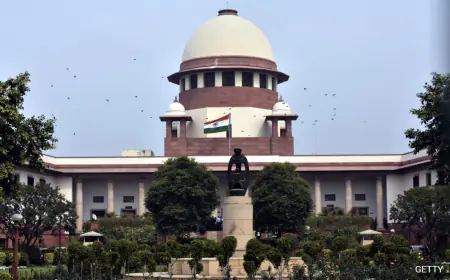Unsecured loans can become a crisis for NBFCs, RBI Deputy Governor warned
RBI Deputy Governor Swaminathan J said that excessive dependence on unsecured loans and capital market funding could become a crisis for non-banking financial companies (NBFCs). Addressing a meeting with representatives of NBFCs, the Deputy Governor also cautioned them against adopting algorithm or machine learning based loan disbursement models. Apart from this, he asked NBFCs to speed up monitoring.

In the long run, non-bank lenders may run into problems if they rely too much on capital market funding and unsecured loans, according to Reserve Bank Deputy Governor Swaminathan J.
Heads of non-bank finance companies' assurance departments gave a speech at an RBI-sponsored conference, cautioning against lending too much algorithmic technology.
He also made public the RBI's disappointment at the tendency for "misguided or intelligent interpretation" of rules to "circumvent the rules" and described it as a "significant threat" to the integrity of the financial system.
Want to get your story featured as above? click here!
Want to get your story featured as above? click here!
Swaminathan J said that “the risk limits for some products or areas such as unsecured loans are “too high” to be sustainable in the long run. It appears that most NBFCs are looking to do the same thing, such as retail loans, top up Loans or capital market funding. Excessive dependence on such products may bring sorrow at some point of time."
After the Reserve Bank of India (RBI) increased the risk weight on unsecured loans to prevent lenders from taking on such risks, there was a flurry of betting the borrowed funds on the capital market, which led the RBI to do so.
On the issue of algorithm-based lending, he said many institutions are turning to rule-based credit engines to accelerate growth in books.
Speaking about the tendency to circumvent rules for personal gain, Swaminathan said such practices undermine regulatory effectiveness, compromising market stability and fairness.
Such practices undermine trust and confidence in the financial sector, potentially exposing consumers, investors and the broader economy to risks and vulnerabilities. He made it clear that RBI will not hesitate to initiate supervisory action as demonstrated in the recent steps.
In recent times, the dominance of NBFCs has increased and they now account for a quarter of bank credit, compared to a sixth in 2013.
















%20(1).jpg)

















.jpg)







.jpg)


.jpg)



































